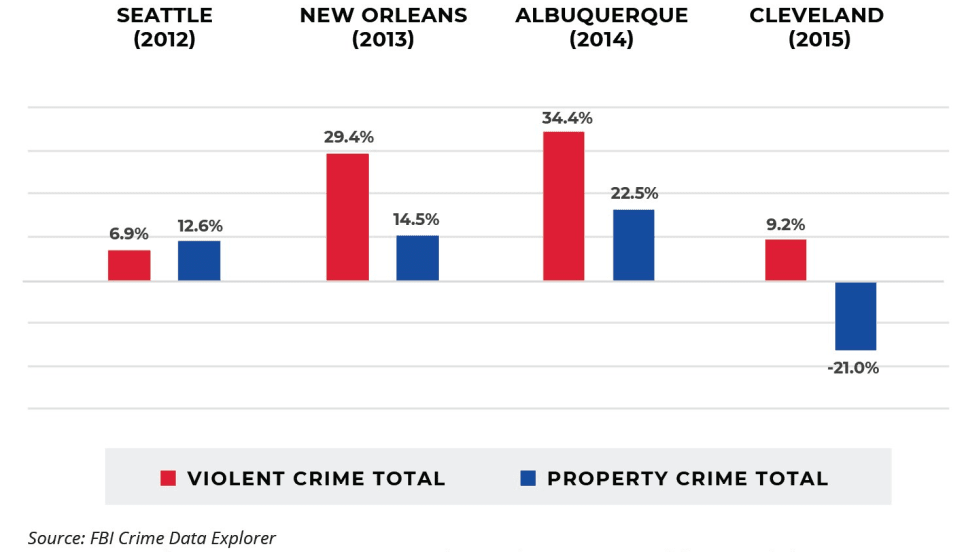Last month on PoliceMag.com we published an article with the headline, "College Professor Suggests Abolishing All Police Agencies." It reported that George Ciccariello-Maher—a visiting scholar at the College of William and Mary—says that police should be replaced by "family, friends, and neighbors." It's staggering that someone from such a prestigious center of higher education would argue for such a preposterous measure. But he is not the first.
Ending all law enforcement in favor of restorative justice is a popular tenet of the radical left platform in this country. And it is gaining momentum.
Abolishing law enforcement is the stated goal of some factions of the social justice movement. Defunding law enforcement agencies and giving the money to social justice programs is a common demand from Black Lives Matter groups. They claim that police cannot be reformed and that the very institution of law enforcement is racist.
Such beliefs come from an incomplete and skewed understanding of history. Anti-police activists argue that the first organized law enforcement agencies in the American colonies were slave patrols. Calling those guys "law enforcement" and tracing the professional lineage of today's police to them is an insult beyond measure. They were more like roving bands of bounty hunters and thugs. Most historians agree the first real professional law enforcement agency in the United States was the Boston Police Department, which was established in 1838, and was not a slave patrol.
The other argument often used by anti-police activists to promote the disbanding of police is that law enforcement has an adverse effect on the black and brown communities. It is a sad fact that many economically disadvantaged people in this country are black and brown. It's also a sad fact that economically disadvantaged areas tend to be centers for criminal activity. Which is why such areas are sometimes "overpoliced" in the vernacular of social justice warriors. I wonder if you asked the people who live in those areas if they really would prefer underpolicing or even no policing.
We're seeing why underpolicing is bad in some of America's largest cities where, either by official order or because officers fear getting jammed up for doing their jobs, police are being less proactive. In those cities, violent crime is skyrocketing. What would no policing look like?
Advocates for abolishing police believe it would look like some sort of utopia, where crimes and disputes are settled through restorative justice.
And in some cases restorative justice can work. In a 2016 Chicago Reader article, a police abolitionist told the story of a young man who robbed a local grocer. The police were not called. Instead, a restorative justice program brought the robber and victim together, and the robber returned what remained of the loot and worked in the store to repay the owner. The owner even hired the young man to work at the store after the debt was repaid.
That's an inspiring story. And I think every cop reading this would applaud the outcome. But they are probably also asking: How would that restorative justice work if the young man had severely beaten, shot, or even killed the grocer or other customers? How do you restore that with a community justice council?
You don't. And the police abolitionists know it.
Seattle socialist city council candidate Shaun Scott ran on a policy of abolishing the city's police department, and almost won. But he had to admit in a public forum that shootings require police response. "We live in a world where it's not possible to turn anywhere for help on big questions like this but to the police force," he said. Scott wants to abolish all racist policing and believes all police are racist. So I'm not sure who is responding to this theoretical shooting.
America without publicly funded law enforcement agencies would be a very different place. It would be a country of private police for the wealthy and no police for anybody else. That could lead to vigilantism. Which is all sorts of fun in the world of Batman. But in real life it means innocent people will be beaten, tortured, and executed. Anti-police activists forget that one of the most sacred duties of American law enforcement is to protect the accused once they are in custody.
Abolishing law enforcement in this country is the road to hell. We're already seeing great damage from other crazy social justice ideas: abolishing bail, requiring prosecutors to turn over all evidence to defense attorneys within 15 days of indictment, decriminalization of every crime but murder, and the list goes on and on.
Nationwide, we are also seeing prosecutors become advocates for the defense and against the police. The prosecutor's job is to speak for the victims and advocate for protection of the public. If prosecutors become social justice warriors and law enforcement agencies are abolished, no one will be safe.
David Griffith is editor of POLICE/PoliceMag.com.







